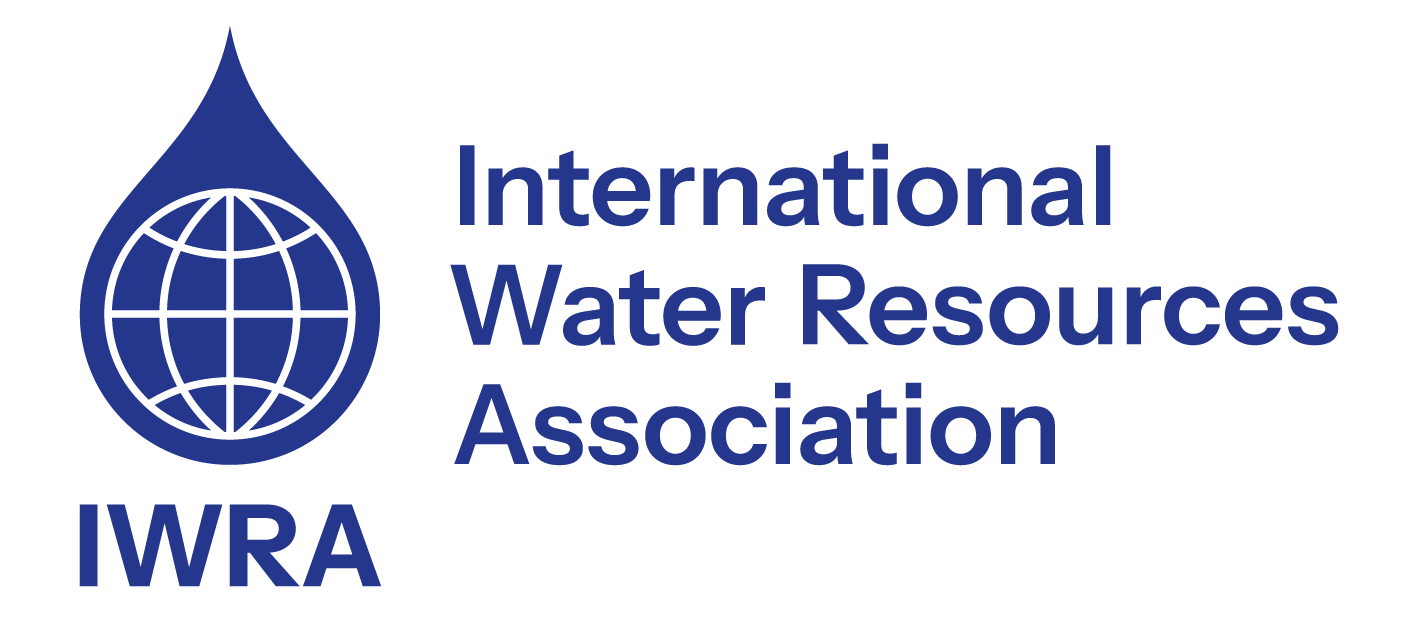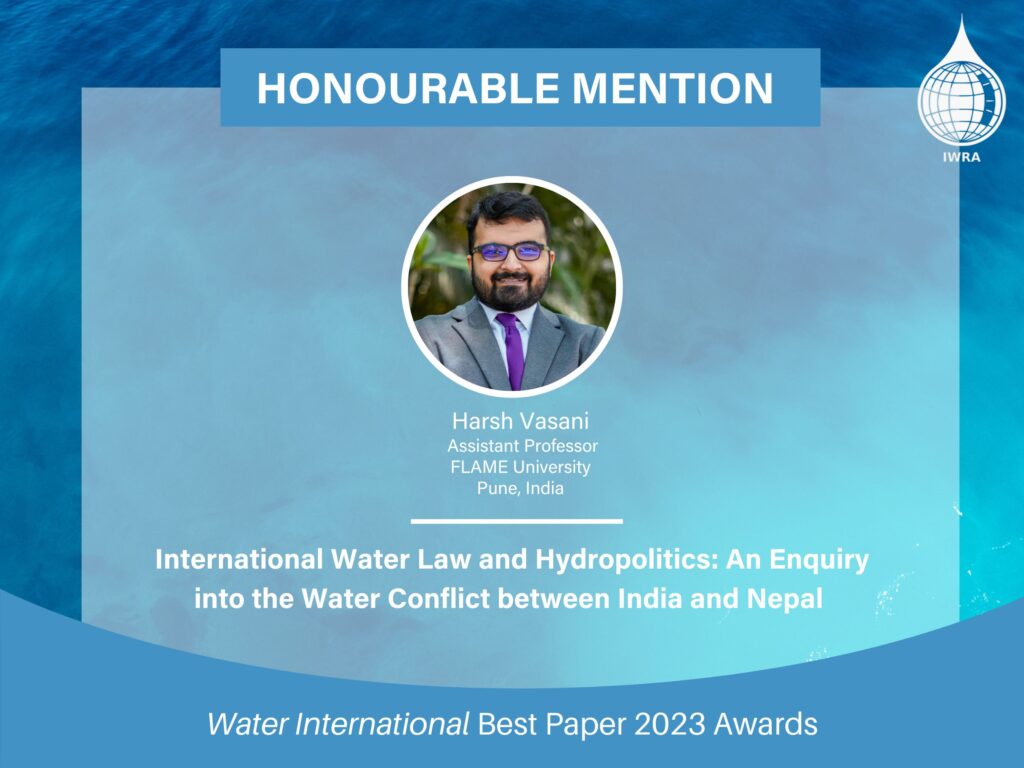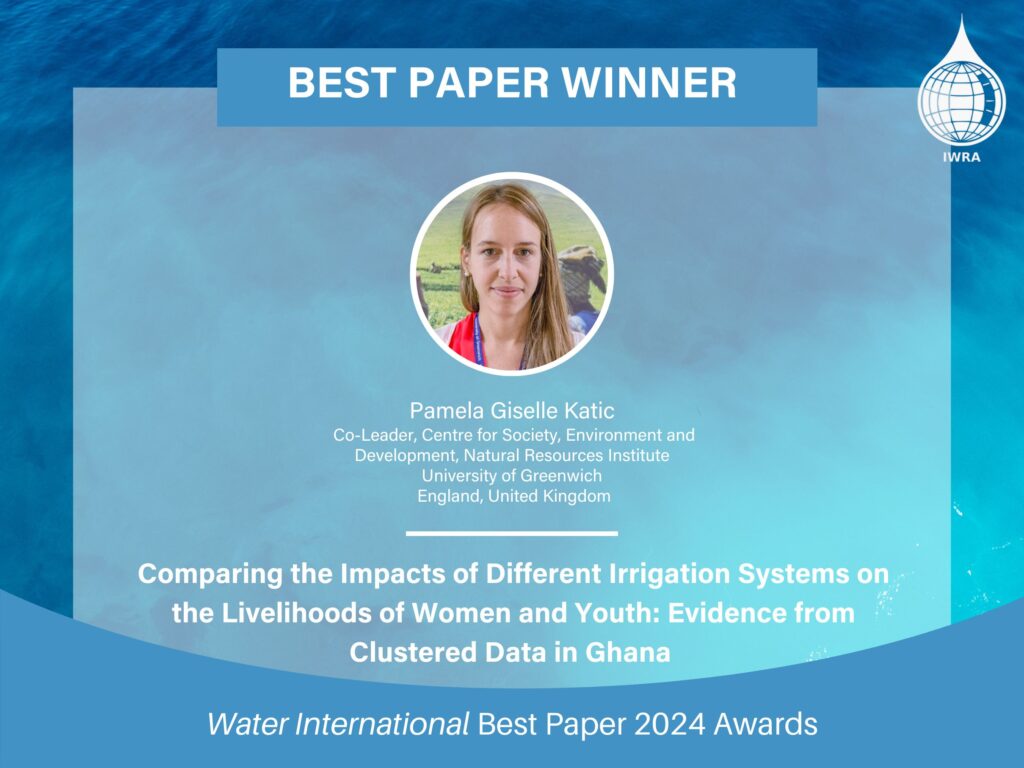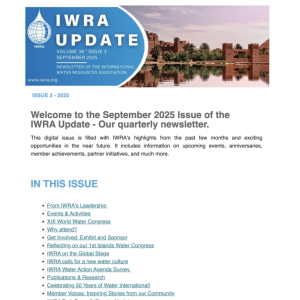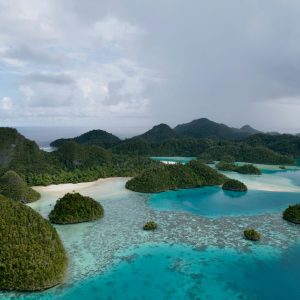IWRA is pleased to announce the recipients of the Water International Best Paper and Honourable Mention Awards for 2023 and 2024.
These awards recognise outstanding scholarly contributions to the field of water resources and are selected through a rigorous process. Each year, the editors of Water International compile a shortlist of notable papers, which is then reviewed by the Editorial Board. The final selections are made after careful deliberation, often announced a year or two after the articles’ publication to allow for a thorough assessment.
Awarded authors will be formally recognised during the XIX World Water Congress, taking place in Marrakech, Morocco, from 1–5 December 2025.
BEST PAPER AWARDS 2023
Both awards for papers published in 2023 go to studies that address critical issues in international transboundary waters. The Best Paper deals with how to motivate data exchange in shared African rivers, while the Honourable Mention looks at the complexities of international water law and hydropolitics in South Asia. Both have lessons that can be applied to elsewhere in the world. Together, they make a considerable contribution to transboundary water governance, one of the principal themes of Water International.
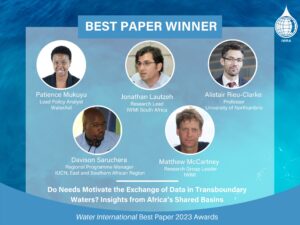
Do needs motivate the exchange of data in transboundary waters? Insights from Africa’s shared basins
Patience Mukuyu, Jonathan Lautze, Alistair Rieu-Clarke, Davison Saruchera & Matthew McCartney
Water International, 48.8, 915-941 doi 10.1080/02508060.2023.2177075
This is a follow-up to the Best Paper 2020 where the same authors developed and applied an assessment framework for data exchange in transboundary waters. Here they go a step further to explore the role of needs as a motivating factor for data exchange, with a focus on African basins. This is a systematic and well considered investigative paper that offers thorough insights into a significant problem in international waters, with broad applications beyond the case study. It was included in the special issue on Exploring the use of data and models in transboundary water governance, edited by Rozemarijn ter Horst, Veena Srinivasan, Kevin Wheeler, Jos Timmerman and Pieter van der Zaag.
Access full article here.
Harsh Vasani
Water International, 48.2, 259-281 doi 10.1080/02508060.2023.2176595
This is a clear, erudite, and comprehensive analysis of a most complex and fractious topic. It stands out as a rigorous and up-to-date analysis of transboundary water conflicts, effectively integrating legal, political, and fieldwork perspectives. The dilemmas summarized in the conclusion are important considerations for clarifying international water law and addressing other transboundary water negotiations.
Access full article here.
BEST PAPER AWARDS 2024
The awards for papers published in 2024 go to studies that provide new insights of high policy relevance. The Best Paper uses an innovative statistical methodology to yield insights on how the benefits of various types of irrigation differ among population subgroups. One of our two Honourable Mention awardees provides valuable insights into why water conservation campaigns often fall on deaf ears. The other provides insights into the role of science in managing transboundary watercourses.
Pamela Giselle Katic
Water International, 49.5, 616-640 doi 10.1080/02508060.2024.2330272
This well-written article is an excellent product of a well-conducted and innovative methodology with clear policy relevance. In particular, the skillful use of propensity matching statistical analysis provides valuable insights on the effects of irrigation of various types on subgroups of actors, in particular women and youth. For example, irrigation appears to have no significant effect on the livelihoods of adult women.
Access full article here.
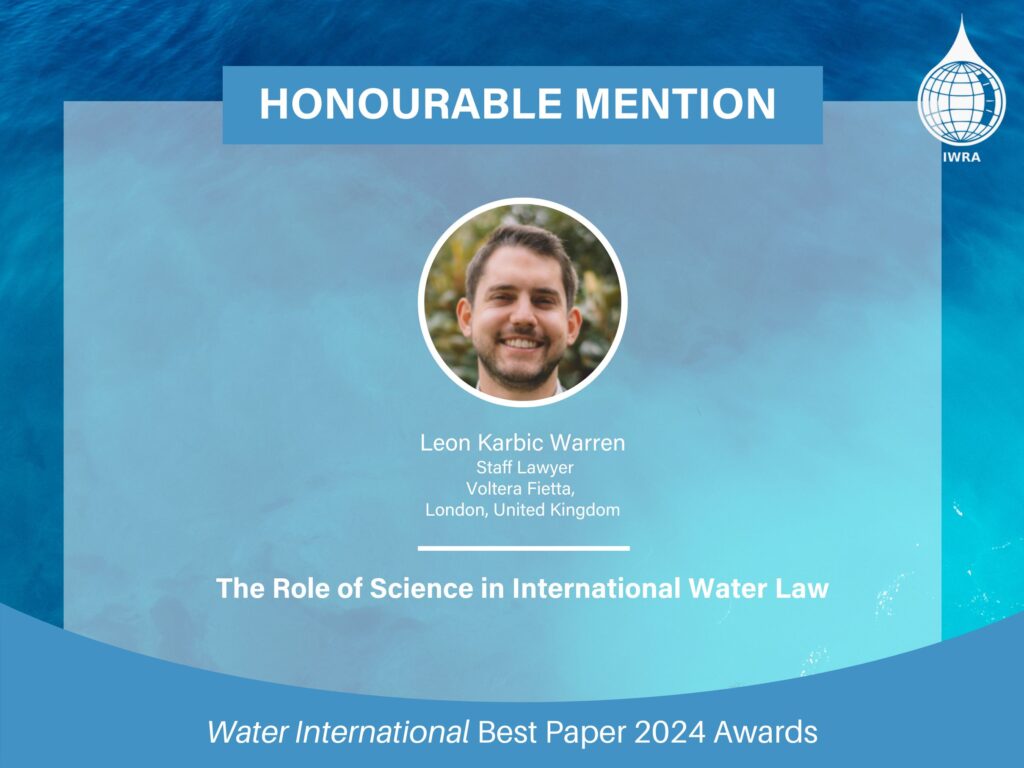
The role of science in international water law
Leon Karbic Warren
Water International, 49.6, 721–737. Doi 10.1080/02508060.2024.2380141
This article is an interesting analysis of the application of science to implementing international water law principles for transboundary watercourse management. It is very much written in the style of a law journal paper, but presented in a way that water experts in other disciplines can understand the nature and importance of the topic. It is particularly prescient given the ongoing assault on science in some political circles and provides useful background for the science-practice-policy interfaces.
Access full article here.
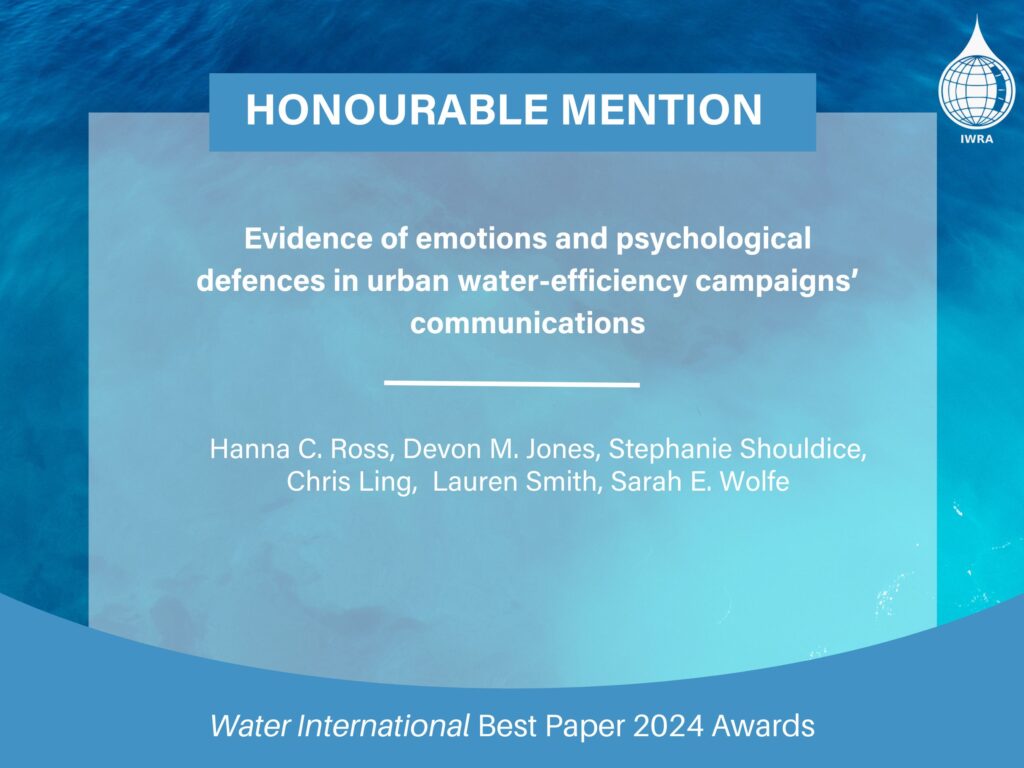
Evidence of emotions and psychological defences in urban water-efficiency campaigns’ communications
Hanna C. Ross, Devon M. Jones, Stephanie Shouldice, Chris Ling, Lauren Smith and Sarah E. Wolfe
Water International, 49.7, 862-879 doi 10.1080/02508060.2024.2396794
This study is highly original and interesting in terms of both its topic and methodology. The authors bridged social psychology and water management, deepening insight into behavioral drivers and therein contributes to an emerging turn in water research to consider fields of social science beyond economics. The methodology is thorough and the analysis is solid. It has clear policy implications in demonstrating the care needed by water authorities in public engagement.
In many ways, this is a pathbreaking paper and we hope it will stimulate further research to determine how generic the findings are, to measure how emotional campaign elements influence actual water-saving behavior, and in developing practical recommendations for practitioners responsible for developing water-efficiency campaigns.
Access full article here.
Congratulations to all the winners!
